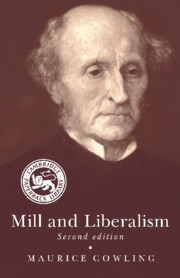3 - The proof of the doctrine
Published online by Cambridge University Press: 05 November 2009
Summary
Society is to be a society, in other words, of seekers after a cultivated disinterestedness of character and cultivated elevation of mind, and Mill's work is dedicated on one view to explaining how. It is dedicated, on another, to explaining why society should be deflected in this direction, and on what authority it should be taken that Mill's direction is the right one. Mill was not content simply to make practical commitment without argument or reason. Mill, more than most English philosophers, displays a desire not just to take his stand and offer his advice, but also to provide reasons why his advice should be taken. It is not the present writer's view that Mill's proof of his practical commitment had binding authority: but if we are to enter into the spirit of his work, we must understand what sort of statement he supposed was possible about it.
In considering these statements, one is conscious of contradiction. In Utilitarianism Mill says, first of all, that the assertion that all action should be guided by utility is an assertion for which proof in ‘the ordinary and popular meaning of the term’ is impossible. With that statement, as will become clear later, the present writer agrees. However, if the principle of utility is not, at this point in Mill's writing, supposed to be capable of proof, Mill rejects the idea that ‘its acceptance or rejection must depend on blind impulse or arbitrary choice’.
- Type
- Chapter
- Information
- Mill and Liberalism , pp. 51 - 76Publisher: Cambridge University PressPrint publication year: 1990

